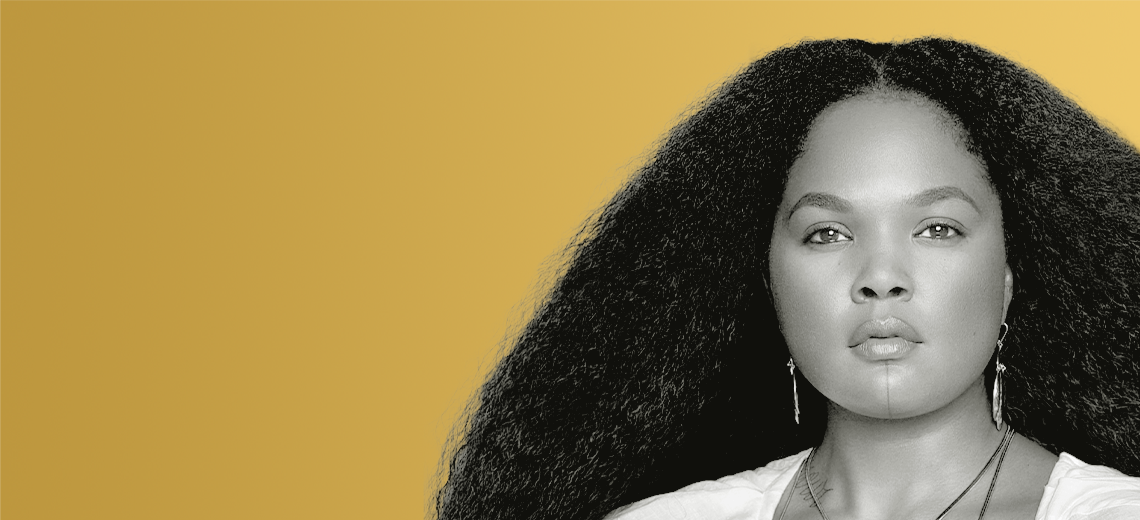This is an episode of the Glossy Beauty Podcast, which features candid conversations about how today’s trends are shaping the future of the beauty and wellness industries. More from the series →
Subscribe: Apple Podcasts • Spotify
The Honey Pot is still only an 8-year-old indie brand, but co-founder, CEO and chief innovation officer Bea Dixon has seen her fair share of ups and downs.
After a preservative system reformulation this year, the sexual wellness and feminine health brand has been involved in controversy since May. Customers took to social media to question the reformulated ingredient list, which now features the preservative phenoxyethanol and new emulsifiers. Rumors were even spreading that the company had been sold and was no longer Black-owned. In the latest Glossy beauty podcast, Dixon shares the pitfalls of going “viral.”
“We admitted to the fact that we could have communicated better,” said Dixon. “You work so hard to do something, and when people feel like there’s an opposite communication happening, you want so badly to prove that that’s not the case. Sometimes it can almost be worse to do that because it looks like you’re being reactive and like you’re defending something. [I] try to find the fine line between not being defensive, but [rather] owning up, being vulnerable and being responsible.”
However, Dixon states that the company’s investors and retail partners have remained supportive throughout. “[They] understand the good preservative system, they understand things change, and they understand the complexity of social media,” she said. Still, Dixon emphasized how important her customer’s journey is, as the products came to life from a very personal experience. After suffering from bacterial vaginosis for eight months in 2014, Dixon woke up from a visionary dream from her grandmother with a list of ingredients to heal her condition. That led Dixon, who was then working as a buyer at Whole Foods, to found the brand as a plant-derived vaginal wellness brand.
Glossy’s Priya Rao spoke to Dixon about The Honey Pot’s founding story, growing list of retail partners and reformulation challenges that led to the recent social media backlash.
Below are additional highlights from the conversation, which have been lightly edited and condensed for clarity.
Tackling Taboo
“I would go pitch to investors and the word ‘vagina’ was said a million times. I would always try to break the ice by saying, ‘Look, we all came from a vagina. There’s nothing weird about this shit. Everybody just calm down, we serve half of the planet.’ My thing was always that I wanted to demystify this word. I wanted to take the sting off of it. I wanted to take the taboo away from it, and I wanted people to not feel shame if they had an odor, an itch, an infection, an STD or anything else. These are menstrual conditions and these are normal things that humanity deals with. It doesn’t make it any better when [the word ‘vagina’] is filled with trauma. I’ve always had that undertone because that is what sits at the foundation of what we do.”
Becoming a full-fledged lifestyle brand
“[Around] 2015, we realized as a team that we can’t just sell washes because it takes 6-8 weeks to consume a bottle of wash and we’re in a consumer packaged goods business. I was looking at the landscape of everything, and this is when I had the realization that we need to figure out what humans would buy from us. I loved The Period Store model. It made it easy to buy your period products because people still felt uncomfortable going to the store to buy them. That was one of the things that I knew I wanted to address. I thought, ‘Why would you be [uncomfortable]? This is normal. You can’t tell your body not to bleed.’ We whole-sold from other companies and we brought in pads, wipes, supplements, pregnancy products and all kinds of stuff. It was a crazy period because the business went from making $30,000 to making a $250,000 in a year, which is what told us that we had something.”
Owning up to mistakes
“It’s important to understand why it happened and to look at the series of events that led you to whatever that place was. It’s very important that, if there’s anything for you to own, you own it and you are authentic about it. But it is also important to be human. If you’re vulnerable, emotional or hurting, don’t hold that in. You have to let that out. You have to say how you feel because it’s hard. Caring for your team is huge [in these moments]. As founders, we’re not necessarily in the weeds the way that we used to be. But if [employees] are not well, then they’re not going to be able to do their job. But whatever you do, don’t be defensive. It doesn’t do anything.”




